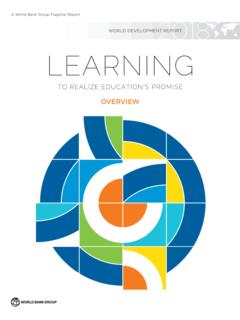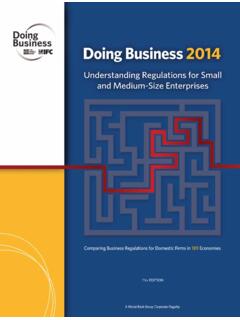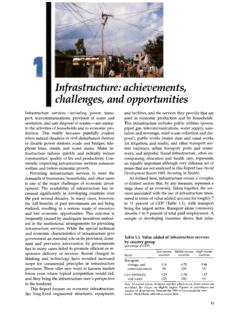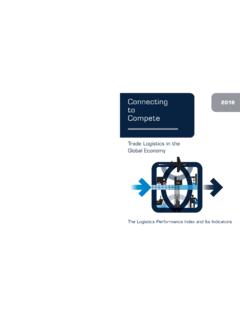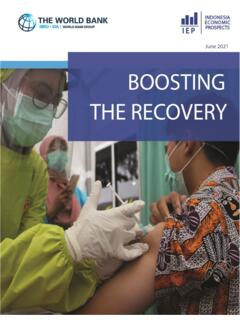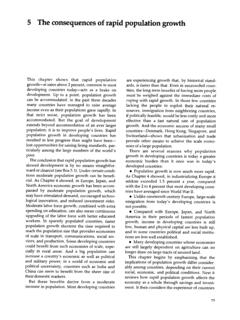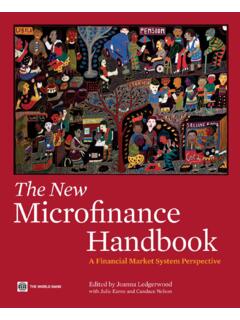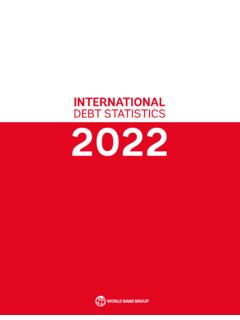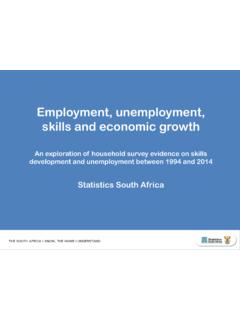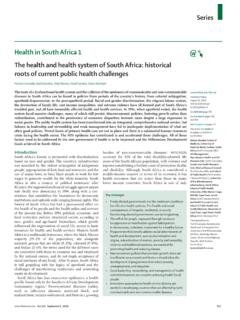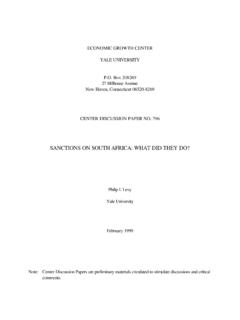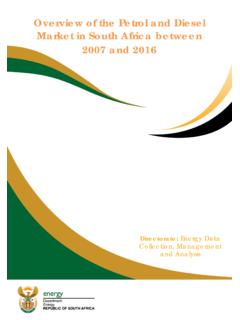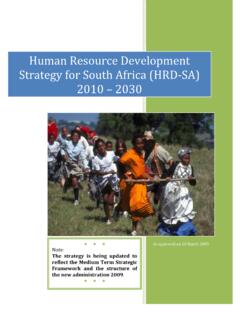Transcription of International Debt Statistics 2020 - World Bank
1 INTERNATIONALD EBT S TAT I S T I C S2020 International debt Statistics 2020 International debt Statistics 2020 2020 International Bank for Reconstruction and Development / The World Bank1818 H Street NW, Washington DC 20433 Telephone: 202-473-1000; Internet: rights reserved1 2 3 4 22 21 20 19 This work is a product of the staff of The World Bank with external contributions. The findings, interpreta-tions, and conclusions expressed in this work do not necessarily reflect the views of The World Bank, its Board of Executive Directors, or the governments they represent. The World Bank does not guarantee the accuracy of the data included in this work. The boundaries, colors, denominations, and other information shown on any map in this work do not imply any judgment on the part of The World Bank concerning the legal status of any territory or the endorsement or acceptance of such herein shall constitute or be considered to be a limitation upon or waiver of the privileges and immuni-ties of The World Bank, all of which are specifically and PermissionsThis work is available under the Creative Commons Attribution IGO license (CC BY IGO) http:// Under the Creative Commons Attribution license, you are free to copy, distribute, transmit, and adapt this work, including for commercial purposes, under the following conditions:Attribution Please cite the work as follows: World Bank.
2 2019. International debt Statistics 2020. Washington, DC: World Bank. License: Creative Commons Attribution CC BY IGOT ranslations If you create a translation of this work, please add the following disclaimer along with the attribution: This translation was not created by The World Bank and should not be considered an official World Bank translation. The World Bank shall not be liable for any content or error in this If you create an adaptation of this work, please add the following disclaimer along with the attribution: This is an adaptation of an original work by The World Bank. Views and opinions expressed in the adaptation are the sole responsibility of the author or authors of the adaptation and are not endorsed by The World content The World Bank does not necessarily own each component of the content contained within the work.
3 The World Bank therefore does not warrant that the use of any third-party-owned individual component or part contained in the work will not infringe on the rights of those third parties. The risk of claims resulting from such infringement rests solely with you. If you wish to re-use a component of the work, it is your responsibility to determine whether permission is needed for that re-use and to obtain permission from the copyright owner. Examples of components can include, but are not limited to, tables, figures, or queries on rights and licenses should be addressed to World Bank Publications, The World Bank Group, 1818 H Street NW, Washington, DC 20433, USA; fax: 202-522-2625; e-mail: (paper): 978-1-4648-1461-7 ISBN (electronic): 978-1-4648-1462-4 DOI: design: Jomo Tariku, World Bank GroupThe Library of Congress Cataloging-in-Publication Data has been viiAcknowledgments ixPART I: Overview 1 Executive Summary 3 Aggregate Financial Flows to Low- and Middle-Income Countries 5 External debt Stocks in 2018 7 External debt Flows in 2018 8 Borrowing Activities of IDA-Only Countries 10 debt Indicators, 2009 18 11 Equity Flows in 2018 12 PART II.
4 Aggregate and Country Tables 15 All Low- and Middle-Income Countries 17 East Asia and Pacific 18 Europe and Central Asia 19 Latin America and the Caribbean 20 Middle East and North Africa 21 south Asia 22 Sub-Saharan Africa 23 Afghanistan 24 Albania 25 Algeria 26 Angola 27 Argentina 28 Armenia 29 Azerbaijan 30 Bangladesh 31 Belarus 32 Belize 33 Benin 34 Bhutan 35 Bolivia.
5 Plurinational State of 36 Bosnia and Herzegovina 37 Botswana 38 Brazil 39 Bulgaria 40 Burkina Faso 41 Burundi 42 Cabo Verde 43 Cambodia 44 Cameroon 45 Central african Republic 46 Chad 47 China 48 Colombia 49 Comoros 50 Congo, Democratic Republic of 51 Congo, Republic of 52 Costa Rica 53C te d Ivoire 54 Djibouti 55 Dominica 56 Dominican Republic 57 Ecuador 58 Egypt, Arab Republic of 59El Salvador 60 Eritrea 61 Eswatini 62 Ethiopia 63 Fiji 64 Gabon 65 Gambia.
6 The 66 Georgia 67 Ghana 68 Grenada 69 Guatemala 70 Guinea 71 Guinea-Bissau 72 Guyana 73 Haiti 74 Honduras 75 Table of ContentsviTABLE OF CONTENTSI ndia 76 Indonesia 77 Iran, Islamic Republic of 78 Jamaica 79 Jordan 80 Kazakhstan 81 Kenya 82 Kosovo 83 Kyrgyz Republic 84 Lao People s Democratic Republic 85 Lebanon 86 Lesotho 87 Liberia 88 Madagascar 89 Malawi 90 Maldives
7 91 Mali 92 Mauritania 93 Mauritius 94 Mexico 95 Moldova 96 Mongolia 97 Montenegro 98 Morocco 99 Mozambique 100 Myanmar 101 Nepal 102 Nicaragua 103 Niger 104 Nigeria 105 North Macedonia 106 Pakistan 107 Papua New Guinea 108 Paraguay 109 Peru 110 Philippines 111 Romania 112 Russian Federation 113 Rwanda 114 Samoa 115S o Tom and Pr ncipe 116 Senegal 117 Serbia 118
8 Sierra Leone 119 Solomon Islands 120 Somalia 121 south Africa 122 Sri Lanka 123St. Lucia 124St. Vincent and the Grenadines 125 Sudan 126 Syrian Arab Republic 127 Tajikistan 128 Tanzania 129 Thailand 130 Timor-Leste 131 Togo 132 Tonga 133 Tunisia 134 Turkey 135 Turkmenistan 136 Uganda 137 Ukraine
9 138 Uzbekistan 139 Vanuatu 140 Venezuela, RB 141 Vietnam 142 Yemen, Republic of 143 Zambia 144 Zimbabwe 145 APPENDIX: About the Data 147 User Guide to Tables 149 User Guide to IDS Online Tables and Database 151 How to Access IDS Online Country Tables 151 Indicators 153 How to Access the Database 155 Data Sources and Methodology 157 Data Sources 157 Methodology 158 External debt and Its Components 160 Data Documentation 163 Sources of the Macroeconomic Indicators 167 Country Groups 169 Regional Groups 169 Income Groups 170 Glossary 171 Debtor Reporting System (DRS) 171viiForewordToday s landscape of development finance is marked by the growing debt vulnerabilities of low- and middle-income countries.
10 The post-2008 financial crisis era is characterized by a rapid rise in lending to them, fueled by factors including buoyant commodity prices, quantitative easing, and low interest rates in high-income countries. With increased access to International capital markets, many low- and middle-income countries shifted away from traditional sources of financing and experienced a sharp rise in external debt , rais-ing new concerns about the low- and middle-income coun-tries, several IDA-only countries have been record-ing the highest increases in external debt since the 2008 crisis. By the end of 2018, IDA-only countries had accumulated a total of $387 billion external debt stock, more than double the level of a decade earlier. External debt among Sub-Saharan african countries grew faster than in other regions: Over half of the countries in the region have seen their external debt stocks
